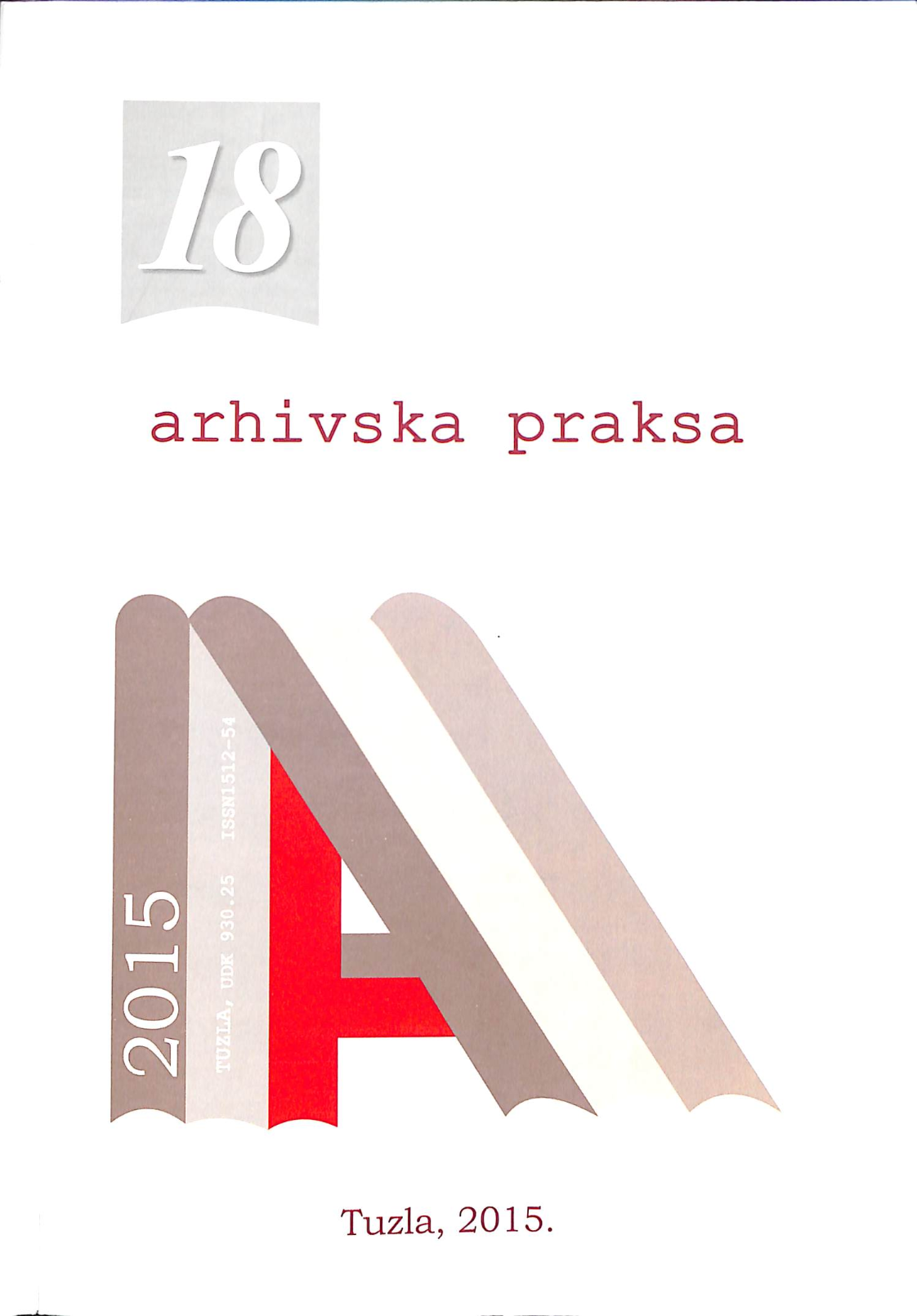Usklađenost hrvatske arhivske prakse sa načelima pristupa arhivskom gradivu Međunarodnog arhivskog vijeća
Compliance of Croatian archival practice with principles of access to archives defined by International Council of Archives
Author(s): Hrvoje Stančić, Ana Garić, Marta MihaljevićSubject(s): Archiving
Published by: Arhiv Tuzlanskog kantona
Keywords: Principles of access to archival materials; archival practice; legislation; access; analogue archives; digital archives;
Summary/Abstract: Based on comparative analysis of information from the web site of the Croatian state archives, we found that there is room for improvement of services offered by the archives in Croatia. First, 19 of 17 state archives don't have any website, and is in this respect very clear direction in which improvements should go. Then, it was found that the operating time reading room usually shorter than that prescribed by the Regulations on the conditions of accommodation, equipment, protection and treatment of archives, number and structure of archival professionals. Besides the harmonization of time reading room open to this Regulation (7 hours), the archives should adjust the timing of the reading room open so as to enable the use of archival material to those users whose regular working hours of Reading Room in conflict with their own hours. Indeed, some archives have longer opening hours reading rooms once a week, and to the rest of the archives should look up to such a good practice. Comparative analysis of the principles of access to archival material with the Croatian archival legislation and other relevant legislative provisions and archival practice has shown that there are some outstanding issues related to the right to access the material in terms of information about the existence of a material with limited access, and information about when this material become publicly available. Information about when a material highlights limit access just to be resolved in the framework of the provision of information in electronic form, as to recording start date and type of material this information alone could be calculated, and the system then could on the one hand to signal archivists that some material limit expired, on the other hand give users relevant information about when to expect unlimited access to the requested material. Then, it was observed that the relevant legislation does not mention the possibility of granting exceptional access to archival material, with limited access in case the need for protection of human rights. That part would definitely should complement the Law on Archives and Archival Institutions Act and the Freedom of Information Act. Furthermore, the Croatian state archives should ensure that archives are accessible to all on equal terms, and that means you should remove physical barriers for people with disabilities, to ensure that the blind or illiterate people can exercise their rights and so on. In contrast, with regard to denial of access to the material, we noticed a discrepancy between the Rules on the use of archival material, which is said to be withholding legally established in the case of an individual who is in the process of criminal charges for the destruction or appropriation of materials, and the Universal Declaration of Human Rights, in which says that the individual is innocent until proven guilty, so this is another place where there is room for harmonization. More info archival legislation that restricts access to the material for privacy, public interest and others. Also limits the application of these principles in the Croatian archival practice. In addition to legal issues, dissent may complicate the work of archivists and the application of principles of access to archival material, they also suggest that the kind of position the Law on Archives and Archival in relation to other laws that apply to archival material and indicate the urgency of the amendments and adjustments to archival activities could have a clear legal basis under which it performs. It can be concluded that the performed comparative analysis showed that the Croatian state archives provide sufficient information on their web sites, but also pointed to shortcomings that should be rectified. Also, a comparative analysis of the conformity of Croatian archives and other relevant legislation with the principle of access to archival material and their application in practice, showed that in this area there is a need for eliminating ambiguities or discrepancies. This article indicates precisely to all these places proposals of concrete measures for improvement.
Journal: Arhivska praksa
- Issue Year: 2015
- Issue No: 18
- Page Range: 407-423
- Page Count: 17
- Language: Bosnian, Croatian, Serbian

